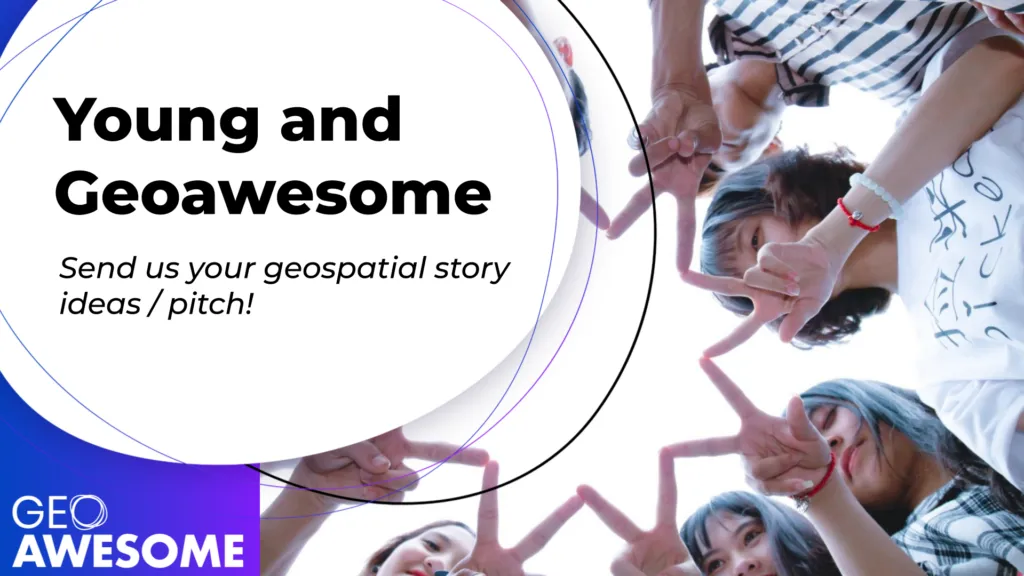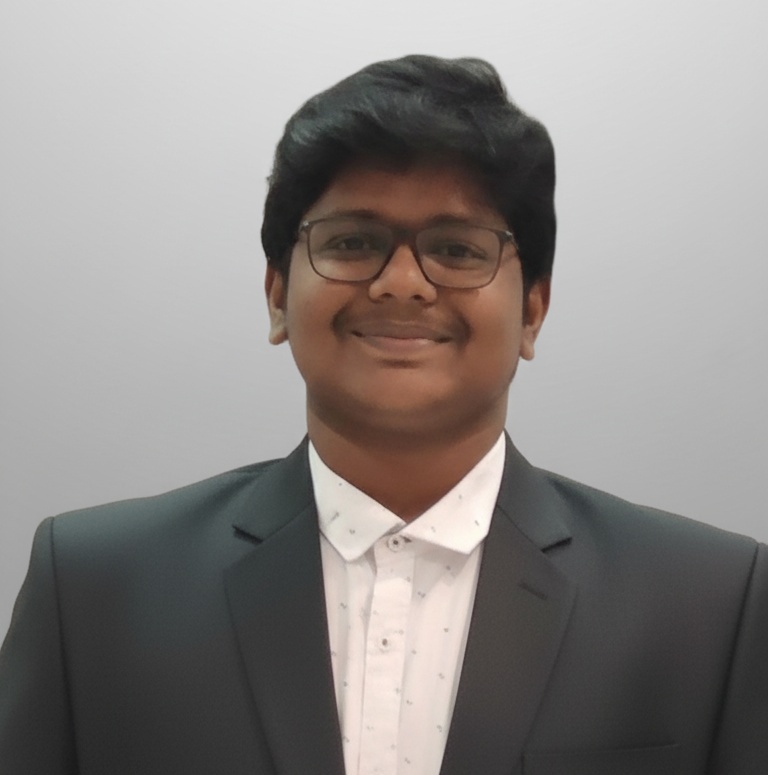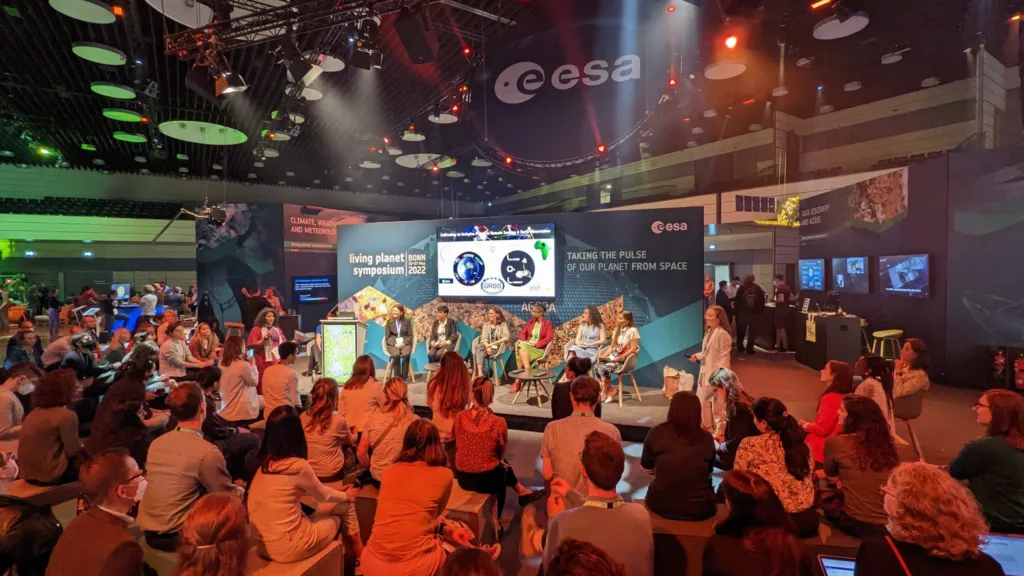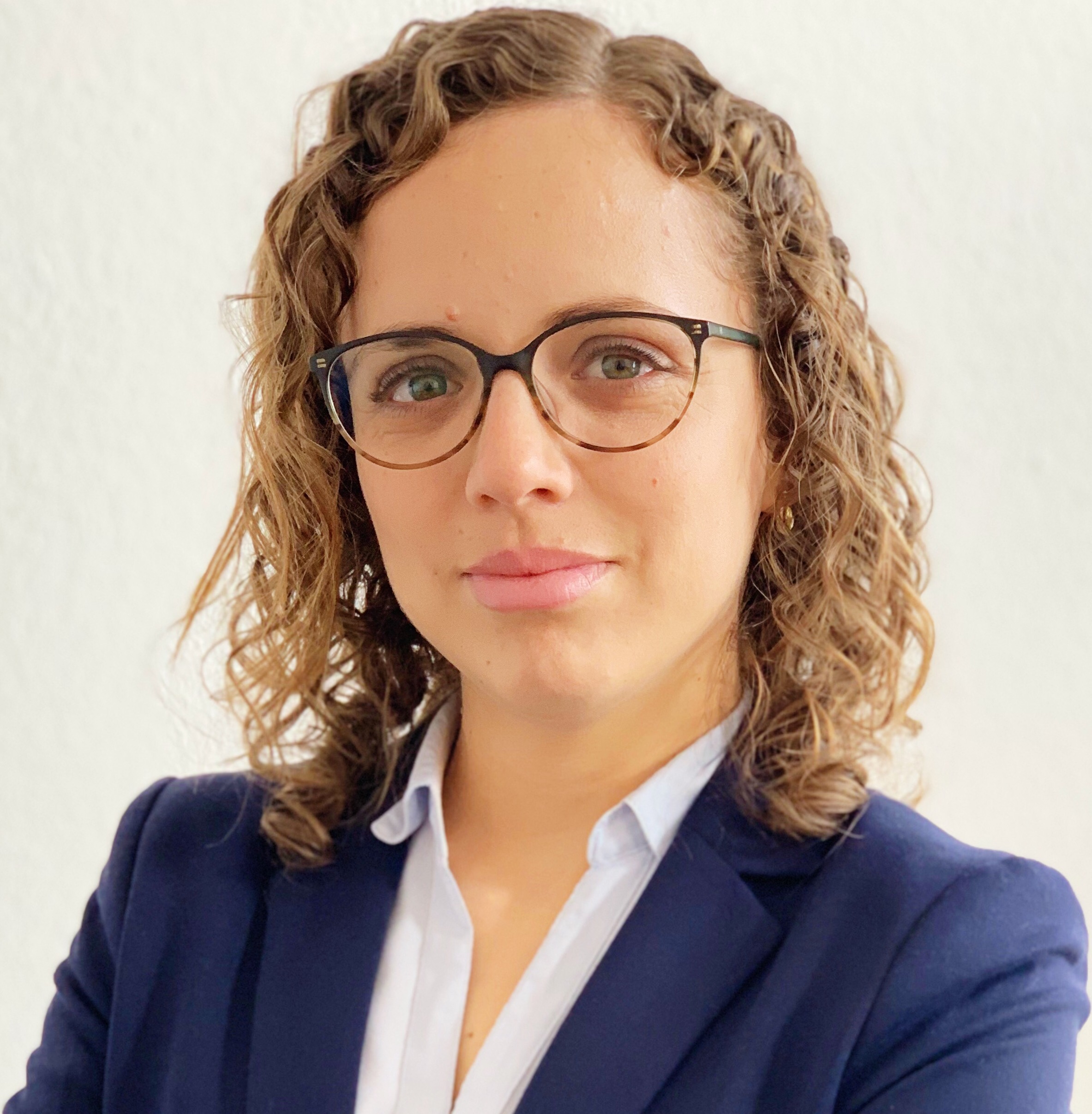By Dr. Gopika Suresh, Dr. Flávia de Souza Mendes, and Dr. Morgan Crowley
Between May 23 and May 27, more than 4,500 people gathered in Bonn, Germany, for the Living Planet Symposium 2022 (LPS2022) to present and discuss the latest science, technology and research advances in the fields of remote sensing (RS) and Earth observation (EO). Organised by the European Space Agency (ESA) together with the German Aerospace Center (DLR), this traditionally RS-focused conference with a plethora of parallel technical/scientific sessions brings together the who’s who and leaders of our community and allows for reunions, networking and the potential to meet future employers/mentors. This year, LPS2022’s focus was on the challenges of building a more sustainable future in the EO framework. Additionally, the program offered several themes that appealed to public and private EO sectors. While scientific sessions were conducted in closed, windowless rooms without any mask mandates or proof of vaccinations, simultaneous AGORA sessions occurred in the exhibition hall that was decorated with awesome, nerdy EO things and lit with a soft light that felt like a nightclub.
We would like to recap what we believe was one of the most successful AGORA sessions of this symposium, the session “Cultivating an Inclusive Future in Remote Sensing & Earth Observation,” organized and moderated by Dr. Gopika Suresh from Sisters of SAR, Dr. Flávia de Souza Mendes and Dr. Morgan Crowley from Ladies of Landsat and supported by our active allies IEEE GRSS IDEA, Women in Copernicus, African Women in GIS, She Maps Australia, and ESA Diversity and Inclusiveness.
Our 90 min AGORA session brought together eight amazing women panelists from different backgrounds, sectors, career stages, and regions of the world including: Dr. Yana Gevorgyan from GEO, Dr. Meghan Halabisky from the University of Washington and Digital Earth Africa, Dr. Polyanna da Conceição Bispo from the University of Manchester, Stephanie Tumampos from IEEE GRSS IDEA and TU Muenchen, Sabrina Szeto of Women+ in Geospatial, Meenal Dhande of Geospatial World Media, Dr. Genevieve Patenaude of EarthBlox and Dr. Fang Yuan of Digital Earth Australia. While the session was free-flowing and occasionally guided by questions from the moderators, we also showed videos from our supporting organizations and virtual panelists, Dr. Yuan and Dr. Patenaude, throughout the session to inspire further discussion. In a pandemic world where travel is for the privileged, we felt it was essential to include the voices of our virtual panelists and virtual moderator who supported us but were unable to attend the conference in person due to the lack of childcare, COVID-related safety protocols, financial support for travel, and travel restrictions. As moderators, we felt awe and pride at being at those spatiotemporal coordinates, to have the opportunity to be among these fabulous women and discuss topics that all of us are affected by, to raise awareness on bias, stereotypes, manels (male-panels) and whanels (white-panels), to show solidarity to other women/underrepresented folks in our field. We felt a sense of satisfaction at knowing we did a good job organising the session – it was not easy with the three of us being in different geographic locations, having jobs, and babies (two of us at least), to take care of!
The session followed the structure of “Experiences to Actions,” where our panelists discussed their career paths and the challenges/barriers they faced that have shaped/influenced their present careers. Six main challenges arose from our conversations, including the:
- challenges of work-life balance
- lack of affordable childcare facilities or support during maternity/menstruation/menopause
- cultural and gender-based stereotypes,
- feeling isolated or invisible as underrepresented scientists experiencing racism and other biases
- a failure in representation between those doing the science and those using the science (e.g., helicopter science), and
- getting support and breaking cultural barriers/gender roles as first-generation scientists, especially for women from developing countries.
Our panelists were then prompted to discuss what action items should be implemented to make the field of EO and RS more diverse, equitable, and inclusive. They discussed the importance of six key actions, including,
- choosing empathy and kindness over scientific arrogance and egos,
- providing microgrants for travel and childcare to support mothers, parents and underrepresented scientists,
- having more women-mentoring-women programmes to help women at all career stages find women role models,
- promoting STEM subjects and showcasing women in RS and EO to young school students of all genders to provide scientific role models who are women,
- mandating co-development and local community-led research and normalizing these actions to make our world of RS and EOmore diverse, and
- finding a community who can support you during tough moments, but also to demand for systematic and structural changes in our institutions.
Along with these, our panelists also encouraged allies to look around at their research teams, panels, co-authors and identify which voices are not being represented and recognize the privilege that they have in changing that dynamic. Finally, our panelists discussed how inspiring young girls to pursue STEM subjects would help bring in more women students and scientists and how young boys who are made aware of outstanding women in our field and inspired by them may be less prone to implicit and explicit biases and discrimination against women.
As moderators, we emphasised that women and underrepresented scientists can no longer bear the weight alone of fighting for diversity, equity, inclusivity and justice. If we want to make our community more inclusive and diverse, we need active allies to listen, learn how to fix the gender gap created by patriarchal societies, actively implement changes, and hand the mic to the underrepresented folks on the table. After all, our community would already be more diverse and inclusive if those in decision-making positions had just listened to what women have been saying forever!
Our session was well-received by a diverse and engaged audience that clapped after nearly every thought from the panelists or videos from our supporting organizations. One of the LPS volunteers assigned to help us with our session told us that our session was one of the most attended at the whole conference (hard to believe when there were two ESA Astronauts at two different events- and they might have meant ‘most attended AGORA session,’ but we’ll take the win!). It was clear that sessions like our own are sorely missing from conferences like LPS; we had several LPS participants come up to us and tell us they wished they had the opportunity to listen to a session like ours when they were early-career scientists, thanking us for openly talking about these topics and showing them ways in which they could seek support. One notable absence? There were fewer men (and no older men) in the audience despite them often holding a majority of the positions of power in the fields of RS and EO. It is possible that the lack of older men at our session could be attributed to the fact that they were still primarily responsible for moderating sessions and appearing on panels (sometimes exclusively just them), including the AGORA Session right before our own. As a gentle reminder for those looking for women speakers at their next panel/session, look at the Ladies of Landsat #LoLManuscriptMondays feature on Twitter or the Sisters of SAR’s SAR_Star webpage.
Now that we are back in our respective homes/offices and hopefully recovered from COVID or the after-effects of so much social interaction after two years of social isolation, it’s time to get to work and implement those action items that we discussed. We must ask ourselves, how can we as a community eradicate or reduce the challenges that the panelists discussed, and how can we implement the action items to make our future more inclusive? It is time that the community asks women and other underrepresented EO/RS folks what they need to succeed and actually listen when they speak. What does our community need to do so our diverse voices reach those ears that are not listening yet have all the power to make changes? We believe that our session, the views and sentiments of our panelists, collaborators, supporting organisations and audience members, altogether representing a diverse chunk of our community, will resonate with the thoughts of like-minded folks across the globe, and together, we will become loud enough never to be ignored again. We are not alone, and we are strong – join the movement and make a change!
So, pass the mic to that quiet person on the table who may feel isolated because they are underrepresented (or find a different way they can participate that may feel safer to them – e.g. in the chat window if there is a language barrier or social anxiety). Show support to that mother on maternity leave and offer to help process and analyse her data or write a section of her manuscript. As a conference organiser, provide on-site child care facilities. Support those who may not feel confident speaking in a non-native language when speaking at meetings or conferences. In your research, cite papers from women or people with non-western sounding names to increase their chances of getting tenure or grants/awards. Give career talks to school students, so they are inspired by the extraordinary women in EO. Do not discriminate against people during hiring based solely on their names or gender. Offer support when you see someone on your team having a hard day as they may be pregnant, ill, navigating a disability, on their period or going through some personal challenge. Include local communities in your projects as equal and valued partners, especially those most affected by climate change. Do not practice modern scientific colonialism or helicopter science. Ask what local communities’ real needs are to develop products and projects that will be truly useful in their daily lives. Be kind and empathetic!
And if you ever feel alone, do not fret! Follow us, the panelists and the other organisations mentioned here on Twitter! We started our AGORA session with Morgan’s words – “We are Humans first, and science is what we do” – and with that, we sign off.
Acknowledgements:
Thank you to our esteemed panelists who provided their amazing perspectives and advice stemming from their own experiences in the field of EO and RS. Additionally, we are grateful to our supporting organizations who provided us with motivation early on in our planning and, at the symposium, videos about their impressive efforts to make our field more inclusive. Lastly, many thanks to Dr. Meghan Halabisky and Dr. Laura Dingle-Robertson who provided feedback on earlier versions of this blog.
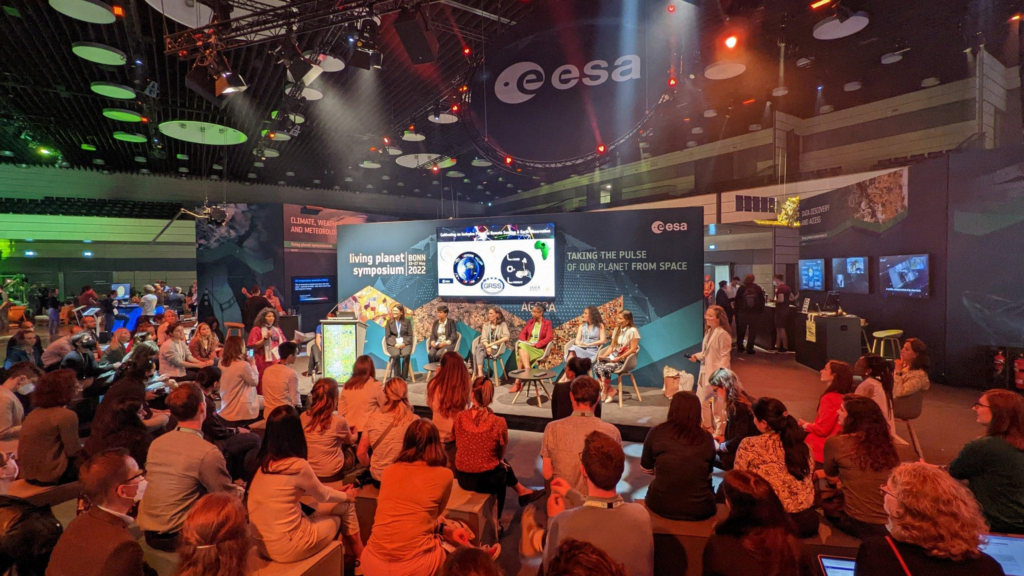
Image 1: A full venue for our AGORA session at Living Planet Symposium. Thanks to Tyler Erickson for capturing this moment and sharing on Twitter.
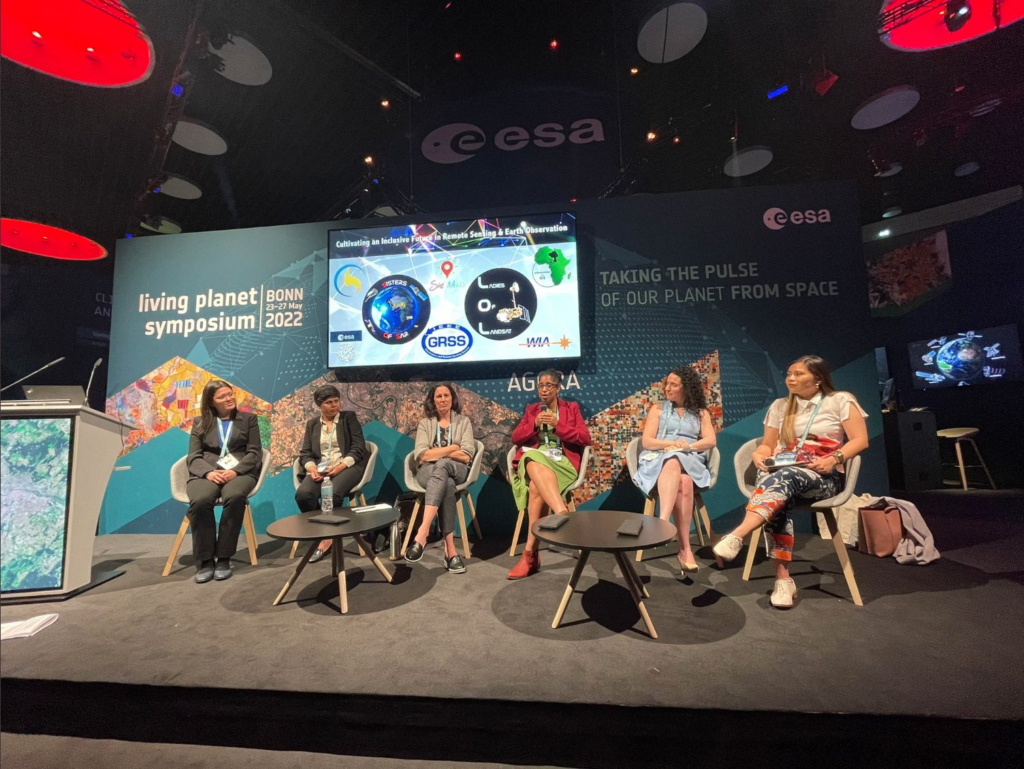
Image 2: The in-person panellists listen to Dr. Bispo describe her experiences as in the field of remote sensing. Thanks to Dr. Michelle Picoli for capturing this moment.
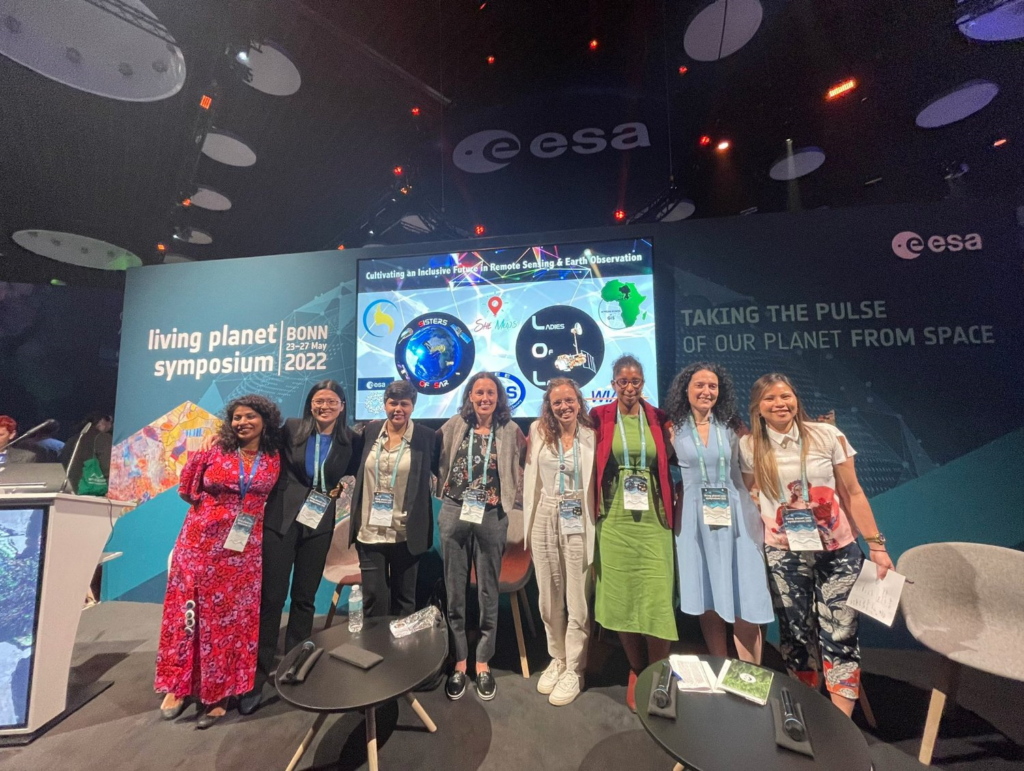
Image 3: Our moderators and panelists, from left to right: Dr. Gopika Suresh, Sabrina Szeto, Maneel Dhande, Dr. Meghan Halabisky, Dr. Flávia de Souza Mendes, Dr. Polyanna da Conceição Bispo, Dr. Yana Gevorgyan, and Stephanie Tumampos. Not pictured were our virtual moderators and panellists: Dr. Genevieve Patenaude, Dr. Fang Yuan, and Dr. Morgan Crowley. Photo credit to Dr. Michelle Picoli.
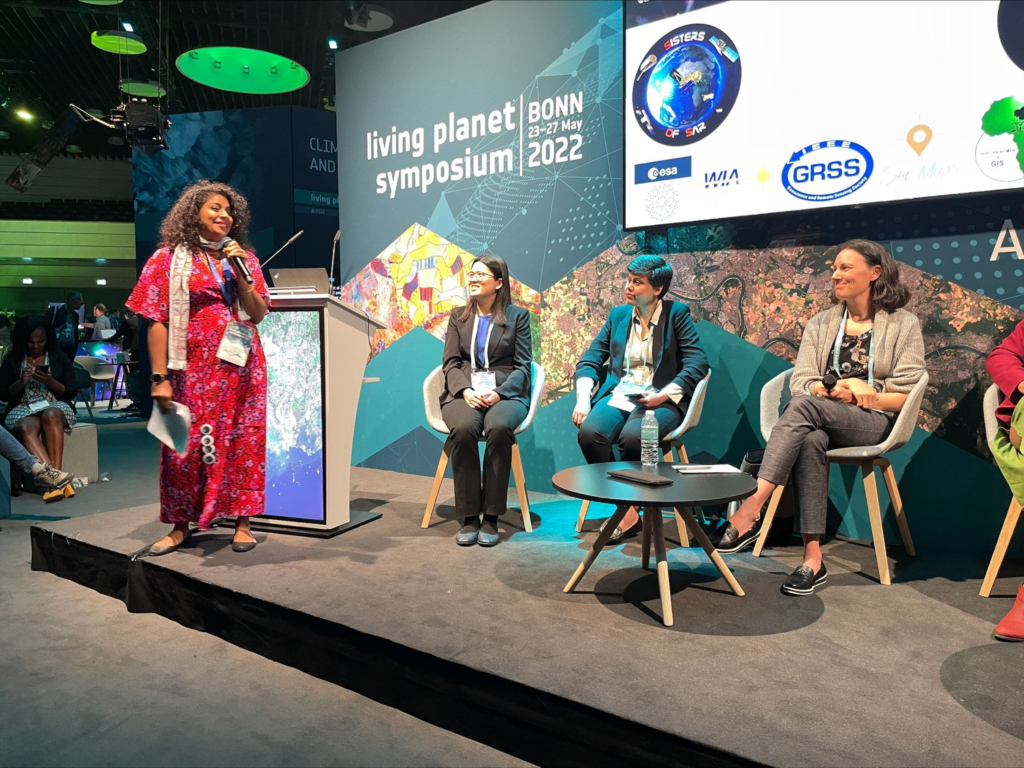
Image 4: Dr. Gopika Suresh from Sisters of SAR skillfully moderates the conversation between the panellists. Thanks to Dr. Michelle Picoli for capturing an image of Gopika in action
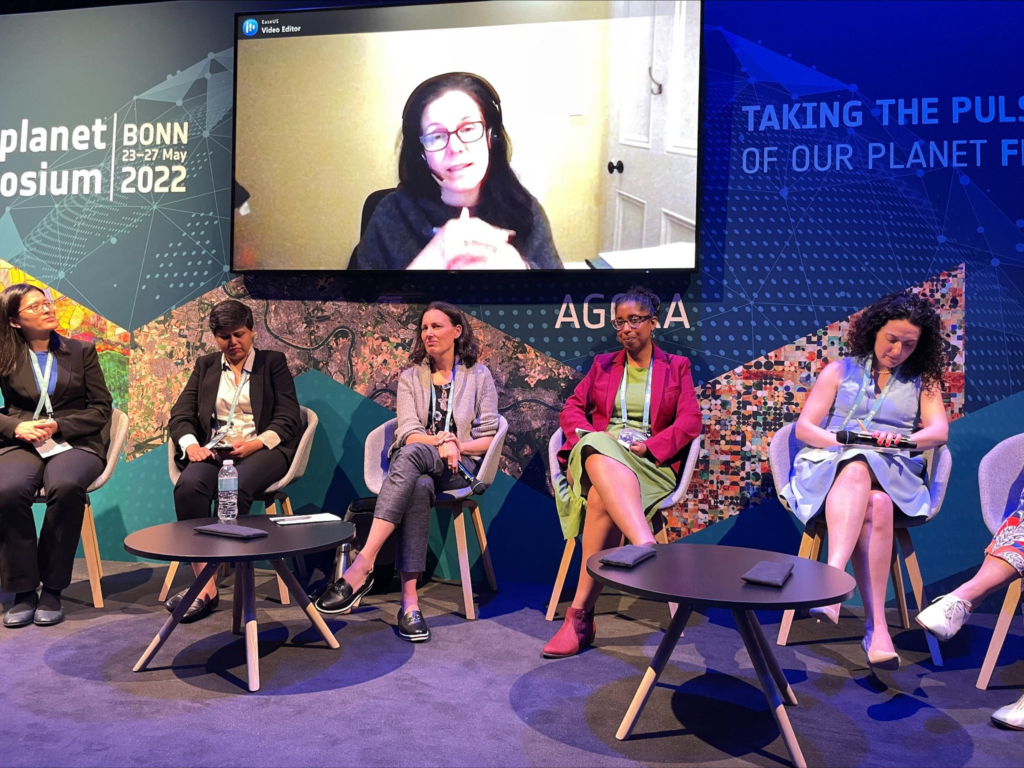
Image 5: The in-person panellists listen to virtual panellist, Dr. Genevieve Patenaude, discuss her experiences as a leader in EO and RS. Photo credit to Dr. Michelle Picoli.
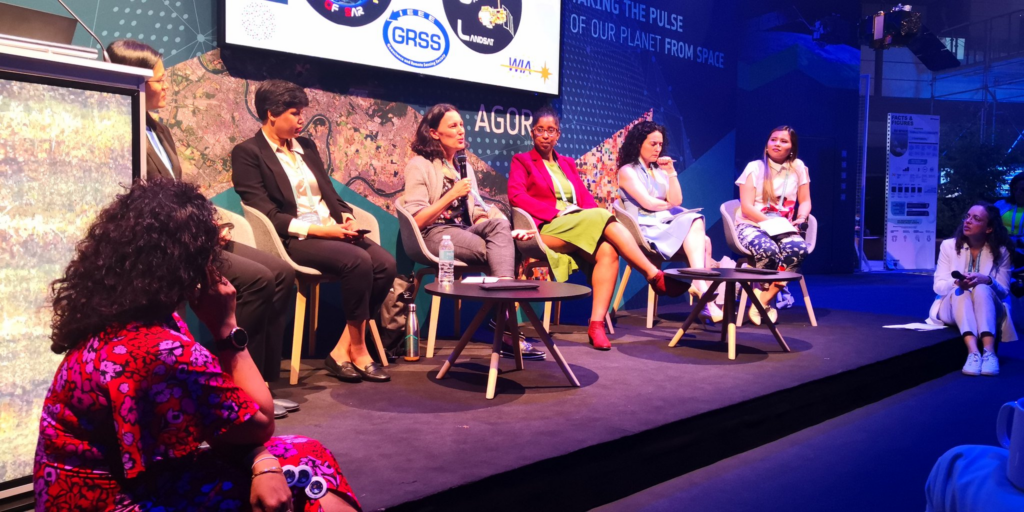
Image 6: The moderators, Dr. Gopika Suresh and Dr. Flávia de Souza Mendes, listen attentively with the other in-preson panellists to Dr. Meghan Halabisky share her perspectives about an inclusive future in EO and RS. Photo Credit to Humboldt´s Earth Observation Lab on Twitter.
Tweets:
Did you like the article? Read more and subscribe to our monthly newsletter!
